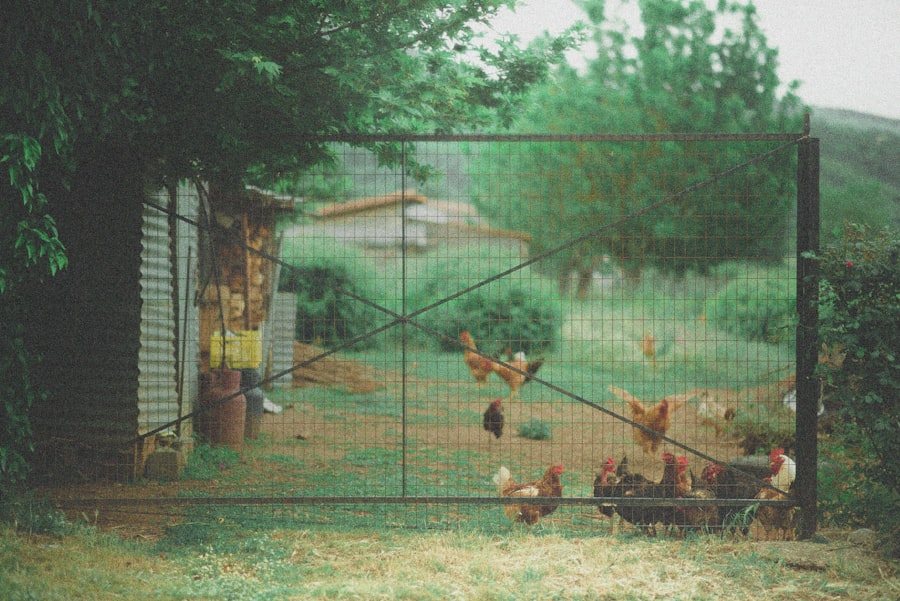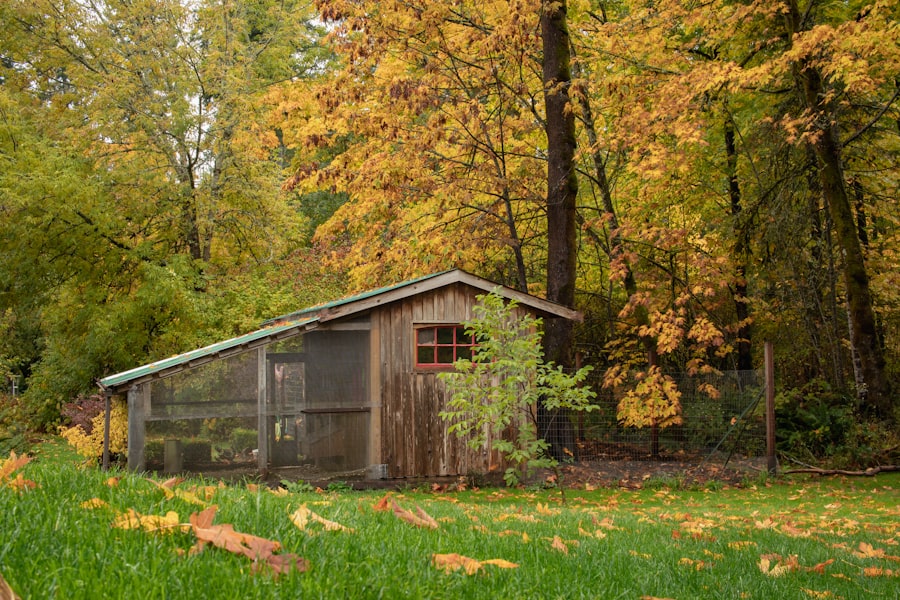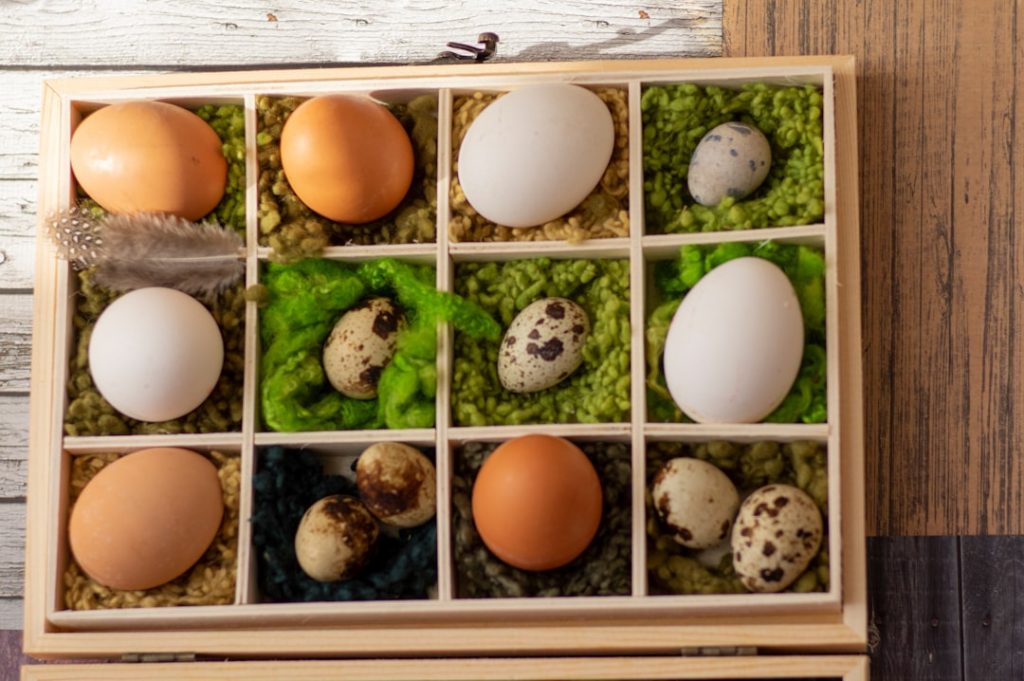When selecting chickens for a backyard flock, several factors should be considered. Climate is a crucial consideration, as some breeds are better adapted to cold weather, while others thrive in warmer conditions. The intended purpose of the flock is also important, whether it’s for egg production, meat, or companionship.
Popular egg-laying breeds include Rhode Island Red, Leghorn, and Australorp, while the Cornish Cross is often chosen for meat production. For those seeking friendly pets, Orpingtons and Silkies are good options. Available space is another key factor, as some breeds are more suited to confined areas, while others require more room to roam.
The size and appearance of the chickens should also be taken into account. Larger, more imposing breeds contrast with smaller, more colorful varieties like the Polish or Frizzle. Bantam breeds such as the Serama or Dutch are suitable for limited spaces or those preferring a less conspicuous flock.
Noise levels vary among breeds, which is an important consideration for urban or suburban settings with close neighbors. Some breeds are more prone to broodiness, which can affect egg production. By carefully evaluating these factors, poultry keepers can make informed decisions about which breeds will best suit their specific needs and circumstances.
Table of Contents
Key Takeaways
- Consider the climate, space, and purpose of raising chickens when choosing the right breed for your needs.
- Provide a secure and spacious coop with proper ventilation, nesting boxes, and roosting bars for your chickens’ housing and coop requirements.
- Ensure a balanced diet for your chickens with a mix of commercial feed, kitchen scraps, and access to fresh water for their feeding and nutrition needs.
- Regularly monitor and maintain the health of your chickens through vaccinations, parasite control, and proper hygiene to prevent diseases.
- Collect eggs daily, provide clean nesting areas, and ensure proper lighting for maximum egg production and collection.
Housing and Coop Requirements
Determining Coop Size
When setting up a coop, it’s essential to consider the size of your flock. Each chicken requires at least 2-3 square feet of space inside the coop and 8-10 square feet of outdoor space. For a small flock of 4-6 chickens, a 4×6 feet coop should be sufficient. However, if you have a larger flock, you’ll need to adjust the coop size accordingly.
Coop Layout and Features
The layout of the coop is crucial for your chickens’ comfort and safety. You’ll need to provide roosting bars for the chickens to sleep on and nesting boxes for them to lay their eggs. Additionally, ensure the coop is well-ventilated to prevent moisture buildup and ammonia levels from rising.
Designing the Outdoor Space
In addition to the coop, you’ll need to consider the outdoor space for your chickens. If possible, provide them with access to a fenced-in yard or run where they can scratch and peck at the ground. This provides exercise, mental stimulation, and safety from predators. Be sure to include plenty of shade and shelter from the elements in your outdoor design. Also, secure the perimeter of the outdoor area with buried wire or fencing to prevent digging predators from gaining access.
By providing a well-designed coop and outdoor space for your chickens, you can ensure they are happy, healthy, and safe.
Feeding and Nutrition

Proper nutrition is essential for keeping your backyard flock healthy and productive. When it comes to feeding your chickens, there are several options to consider. Many chicken owners choose to feed their flock a commercial feed that is specifically formulated for laying hens or meat birds.
These feeds are designed to provide all of the essential nutrients that chickens need to thrive, including protein, vitamins, and minerals. Additionally, some commercial feeds are supplemented with ingredients like omega-3 fatty acids or probiotics to promote overall health and egg quality. In addition to commercial feed, it’s important to provide your chickens with access to fresh water at all times.
Chickens can drink a surprising amount of water each day, especially during hot weather or when they are laying eggs. Make sure that their water source is clean and free from contaminants, and consider using a waterer that is designed to prevent spills and contamination. In addition to commercial feed and water, many chicken owners choose to supplement their flock’s diet with kitchen scraps or garden produce.
Chickens can safely eat a wide variety of fruits, vegetables, and grains, but it’s important to avoid feeding them anything that is spoiled or moldy. By providing a balanced diet that includes commercial feed, fresh water, and occasional treats, you can ensure that your backyard flock remains healthy and happy.
Health and Disease Prevention
Keeping your backyard flock healthy is essential for their well-being and productivity. One of the best ways to prevent disease in your flock is to practice good biosecurity measures. This includes keeping your coop and outdoor area clean and free from standing water or waste buildup.
Regularly clean out the coop bedding and replace it with fresh material to prevent the buildup of bacteria and parasites. Additionally, keep an eye out for any signs of illness in your flock, such as lethargy, decreased appetite, or abnormal droppings. If you notice any concerning symptoms, it’s important to isolate the affected bird and seek advice from a veterinarian who specializes in poultry health.
In addition to good biosecurity practices, it’s important to provide your flock with regular access to sunlight and fresh air. This helps to boost their immune systems and prevent respiratory issues. Additionally, consider providing your chickens with access to dust baths, which help them to keep their feathers clean and free from parasites.
Finally, consider vaccinating your flock against common diseases like Marek’s disease or Newcastle disease if they are at risk. By taking these proactive measures, you can help to prevent disease in your backyard flock and keep them healthy for years to come.
Egg Production and Collection
If you’re keeping chickens primarily for egg production, it’s important to understand how to maximize their laying potential. One of the most important factors in egg production is providing your hens with a balanced diet that is high in protein and calcium. This helps to ensure that they have all of the nutrients they need to produce strong and healthy eggs.
Additionally, make sure that your hens have access to plenty of fresh water at all times, as dehydration can impact their ability to lay eggs consistently. In addition to nutrition, it’s important to provide your hens with a comfortable and stress-free environment. This includes ensuring that their coop is clean and well-ventilated, as well as providing them with plenty of space both indoors and outdoors.
Additionally, make sure that your hens have access to nesting boxes where they can lay their eggs in privacy. Check these boxes regularly for eggs so that they don’t become overcrowded or dirty. When collecting eggs from your hens, handle them gently and store them in a cool place until you’re ready to use them.
By providing your hens with a healthy diet and comfortable living environment, you can help them to produce a consistent supply of fresh eggs for you and your family.

Minimizing Conflict within the Flock
To minimize conflict within the flock, provide plenty of space for all of the birds and ensure that there are multiple food and water sources available. Additionally, it’s important to provide your chickens with opportunities for mental stimulation and physical activity. This can include providing them with access to a spacious outdoor area where they can scratch at the ground and explore their surroundings.
Providing Enrichment Activities
Additionally, consider providing them with enrichment activities like hanging treats or toys in their coop or run. This not only helps to keep them entertained but also reduces stress and boredom within the flock.
Monitoring Behavior and Maintaining a Healthy Flock
Finally, spend time observing your chickens’ behavior on a regular basis so that you can quickly identify any signs of stress or illness. By understanding their normal behavior patterns, you’ll be better equipped to notice when something is amiss within the flock. By providing a well-socialized environment for your chickens and monitoring their behavior closely, you can help them to live happy and fulfilling lives.
Legal Regulations and Zoning Laws
Before starting a backyard flock, it’s important to familiarize yourself with any legal regulations or zoning laws that may apply in your area. Some municipalities have specific ordinances regarding the keeping of chickens within city limits or residential areas. These regulations may dictate how many chickens you can keep, how far they must be kept from neighboring properties, or whether roosters are allowed.
Additionally, some homeowners’ associations may have their own rules regarding backyard flocks. Before bringing home any chickens, be sure to review any relevant documents or bylaws that may impact your ability to keep them on your property. If there are no specific regulations in place regarding backyard flocks in your area, it’s still important to be considerate of your neighbors when keeping chickens.
This includes keeping noise levels down by avoiding roosters if possible and ensuring that your coop is clean and odor-free. By familiarizing yourself with any legal regulations or zoning laws that may apply in your area before starting a backyard flock, you can ensure that you are in compliance with local ordinances and maintain positive relationships with your neighbors. In conclusion, keeping a backyard flock of chickens can be a rewarding experience that provides you with fresh eggs, natural pest control in your yard or garden, and even companionship from these charming birds!
By carefully considering factors such as breed selection, housing requirements, nutrition needs, health prevention measures, egg production strategies, behavior management techniques, and legal regulations before starting your backyard flock journey – you can set yourself up for success as a responsible chicken owner!
If you’re interested in learning more about keeping chickens, you might also want to check out this article on how to build a chicken coop with a trampoline. It offers some creative and practical tips for creating a comfortable and safe environment for your feathered friends.
FAQs
What are the basic requirements for keeping chickens?
Chickens require a secure coop or housing, access to fresh water, a balanced diet, and protection from predators.
What should be included in a chicken’s diet?
A chicken’s diet should include a balanced feed, fresh water, and access to grit and oyster shell for calcium.
How much space do chickens need?
Chickens need at least 2-3 square feet of space inside the coop and 8-10 square feet of outdoor space per chicken.
What are some common health issues in chickens?
Common health issues in chickens include parasites, respiratory infections, and egg-laying problems.
How can I protect my chickens from predators?
To protect chickens from predators, it’s important to secure the coop with sturdy fencing, lock the coop at night, and use predator-proofing measures such as hardware cloth and electric fencing.
What are some benefits of keeping chickens?
Keeping chickens can provide a sustainable source of fresh eggs, natural pest control in the garden, and the opportunity to connect with nature and learn about animal husbandry.
Meet Walter, the feathered-friend fanatic of Florida! Nestled in the sunshine state, Walter struts through life with his feathered companions, clucking his way to happiness. With a coop that’s fancier than a five-star hotel, he’s the Don Juan of the chicken world. When he’s not teaching his hens to do the cha-cha, you’ll find him in a heated debate with his prized rooster, Sir Clucks-a-Lot. Walter’s poultry passion is no yolk; he’s the sunny-side-up guy you never knew you needed in your flock of friends!







